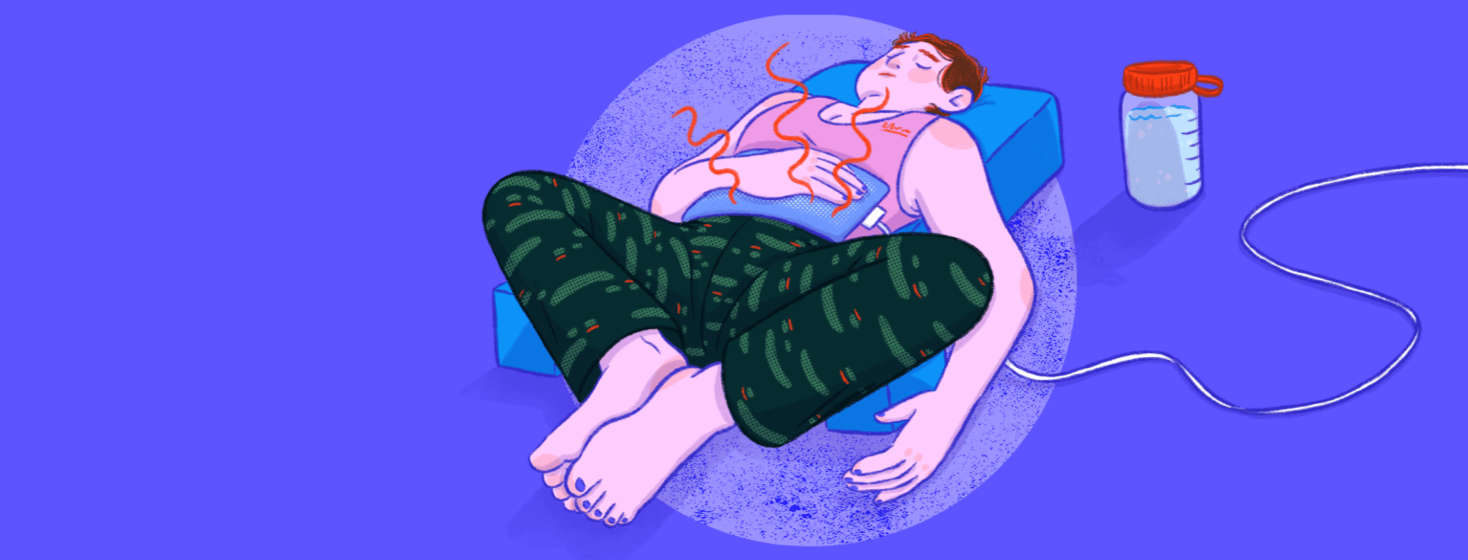Periods and IBS
It is no secret that periods can come with some uncomfortable side effects like bloating, painful cramps, and frequent trips to the bathroom. If you are also living with IBS, you might find that your IBS symptoms change depending on where you are in your cycle. Let's take a closer look at why your period may worsen your IBS symptoms, and explore some strategies for managing this.
Hormones and IBS
Many of the gut changes seen throughout the menstrual cycle can be attributed to the different hormones being released throughout your cycle. Two of the main hormones associated with menstruation are estrogen and progesterone. But they do not just affect the sex organs – there are receptors for these hormones all over the body, including in the gut.1
A study published in 2021 looked at different bowel symptoms during the 3 stages of the menstrual cycle (follicular phase, luteal phase, and menstrual phase). They found that almost 30 percent of participants suffered from constipation during the luteal period of their cycle. It is thought that constipation during the luteal phase is due to high levels of the hormones progesterone and estradiol, which slow down how quickly food moves through the gut.2
The study also found that 15 percent of participants suffered from diarrhea, mostly during the menstrual phase of their cycle. This is thought to be caused by higher levels of the hormone prostaglandins, which cause your bowels to move faster.2
Managing symptoms during your period
Now that you know why your IBS symptoms might get worse around your period, let's review different self-care activities that my clients have used to get them through a difficult week.
Avoid trigger foods
Some people find that eliminating their trigger foods during their period helps with symptom management. Once your period and the flare-up pass, you can go back to strategically including your trigger foods in a comfortable and manageable way.
Eat more foods containing soluble fiber
Soluble fiber is a type of fiber that absorbs water in the bowels. It can help firm up your bowel movements if you have diarrhea. Sources of soluble fiber include avocados, oatmeal, barley, chia seeds, flax seeds, and psyllium husk. Some people find that incorporating a source of soluble fiber at each meal helps with diarrhea management.3
Drink plenty of water
If you have diarrhea, you may become dehydrated. Be sure to keep a glass of water or water bottle with you throughout the day, so you don’t forget to sip! If you have trouble remembering to drink water, set a reminder on your phone or download an app reminding you to drink.
Try some gentle physical activity (like yoga)
Studies show that yoga reduces pain perception by blocking pain receptors in the brain. Some people find that incorporating gentle yoga into their day helps with pain management. If you’re not sure where to start, there are many free YouTube videos with gentle yoga routines for you to try.4
Get quality sleep
Disrupted sleep is more common in people with IBS, and poor sleep is associated with IBS-related pain, distress, and reduced quality of life. Try getting some extra rest when your symptoms are bad.5
Use a hot water bottle or heat pack
The warmth will help soothe upset guts and may make a living with worsened symptoms a little easier.
Final thoughts
The hormonal changes that happen throughout a person’s menstrual cycle contribute to worsening IBS symptoms. Luckily, there are strategies you can use to manage your symptoms. These include limiting trigger foods, getting enough sleep, and engaging in light physical activity like yoga.
What are your favorite flare-day self-care tips? Let us know in the comments below!

Join the conversation